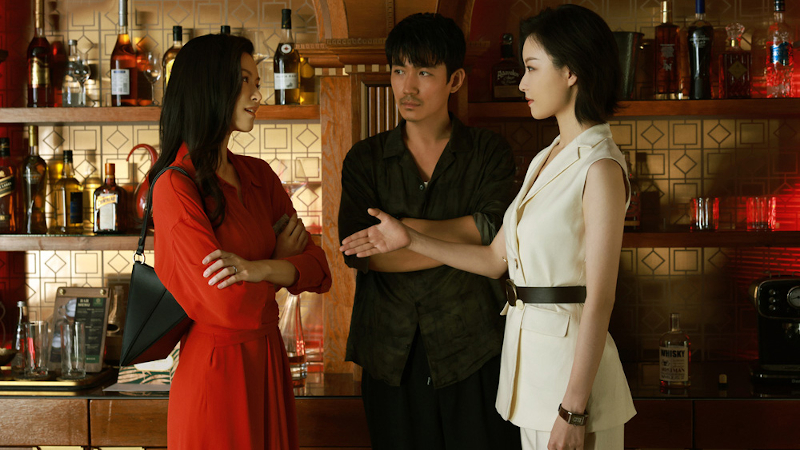Directors – Cui Rui, Liu Xiang – 2022 – China – Cert. 15 – 121m
*****
A man’s wife vanishes and is replaced by an imposter; when no-one believes him, he hires a hotshot lawyer to find out what’s happening and get his real wife back – out in UK cinemas on Friday, July 14th
He Fei (Zhu Yilong) walks into a police station to ask for help with finding his wife Li Muzi, who has disappeared. The desk sergeant, who has clearly heard it all before, tells him there’s nothing they can do. Outside the station, in the pouring rain, he is approached by Officer Zheng (Du Jiang) who overheard and helpfully tries to calm him. The couple are holidaying in the island of Barlandia, outside of Chinese jurisdiction. He has recurring nightmares of her (Huang Ziqi) calling out his name for help and feels helpless in the face of them.
The next morning, events take a turn for the worse when He wakes up beside his wife Li Muzi (now played by Janice Man), who is not the real Li Muzi but an imposter he’s never seen before. Yet every piece of evidence he can think of to support his story seems to have changed to support hers– her passport seems genuine and shows that she entered the country at the same time as him, she can answer all manner of questions about the couple’s personal life, she has a scar on her upper thigh that no-one but the two of them know about.
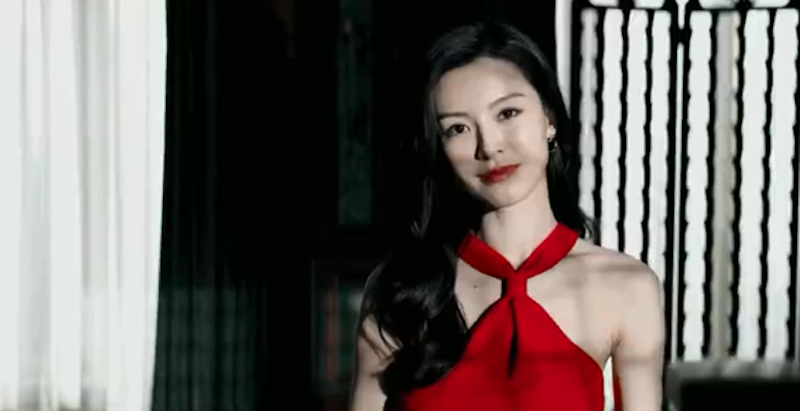
On the TV at a local bar, he sees a lady lawyer Chen Mai (Ni Ni from Shock Wave 2, Herman Yau, 2020) dedicated to securing justice for people in seemingly impossible cases who by coincidence is playing at the pool table. When he explains the plight of his friend to her, she refuses his case because he’s not being honest, agreeing to help the next day when he tells her the person in trouble is not a friend, but, rather, himself. She has two conditions: he must be completely truthful with her, and he must do exactly as she says. He agrees.
The next hour and a half is a skilfully plotted, high octane adrenaline ride as the false Muzi tries to manipulate He, claiming that “we want everything you have”. Who exactly “we” are is a moot point; Chen suspects a powerful crime syndicate aimed at parting rich people such as He and Muzi from their money.
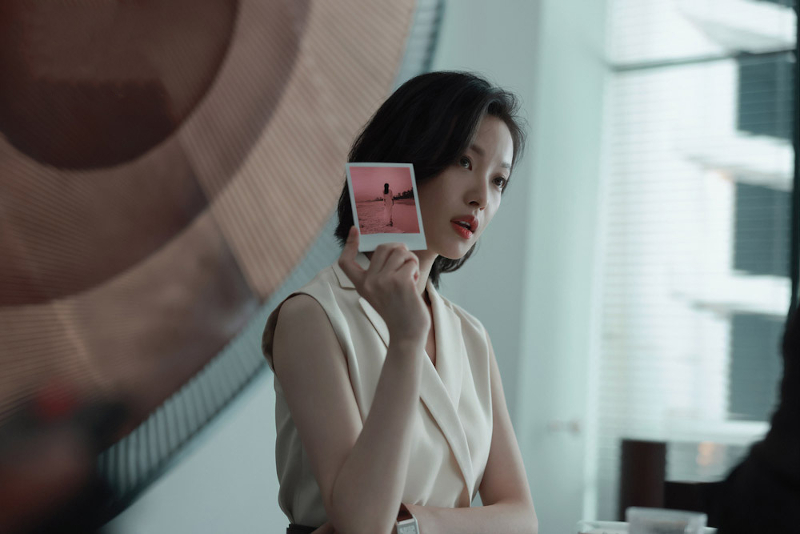
However, as we learn more about Mr. and Mrs. He’s marriage and relationship, much of it through flashback recounted by He for his lawyer, it becomes clear that she is from a well-heeled background compared to his average, not very well off level of income. And as we become more familiar with the assorted characters, leads and antagonists, our initial assumptions about their identities and characters are challenged, altering the very fabric of the story so that what you think it’s about at the start turns out not to be what it’s really about at all by the time you reach the end. All this is achieved by very clever cinematic sleight of hand, with the set-up of the man whose story no-one believes recalling the plight of the heroine of The Lady Vanishes (Alfred Hitchcock, 1938)
That’s doubly significant because the current film is based on Frenchman Robert Thomas’ 1960 play Trap For A Lonely Man, which Hitch at one point planned to film. Watching it, it’s not hard to see why. Many of the characters are not in fact who or what they appear or claim to be, and their motives not at all what you first assume. As additional information leaks into the audience’s understanding, identities and characters subtly shift and surprise you.
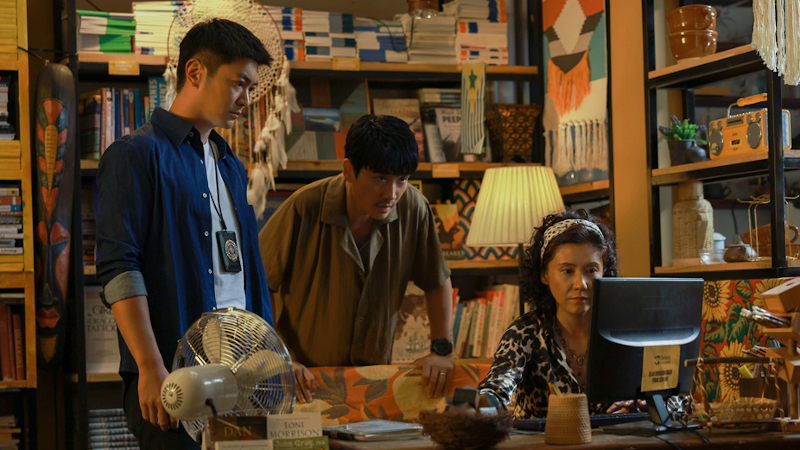
When watching scenes in movies, the assumption is that what we’re seeing is true in terms of the story, but here that isn’t always necessarily the case. Some of the characters aren’t telling the truth (and obvious one is He’s bogus wife) and much of what we see isn’t actually what it appears, however the logic underlying all this is ultimately consistent – it’s not one of those films that falls apart when you start to closely examine the plot and its ramifications, nor is it ever difficult to follow or overly convoluted (quite an achievement for an South East Asian film, as overly convoluted plots are common). As thrillers go, this one is devilishly clever, will keep you guessing right up ‘til the end and will have you thinking about it long afterwards. It also has substance, although to explain what lies behind it all before your first viewing would be to spoil it.
This is not an easy trick to pull off – think how many thrillers you’ve seen that fail in this regard – yet, in the very capable hands of Cui Rui and Liu Xiang, it delivers. Highly effective set pieces including a heart-stopping, fast car chase with bravura driving as hero and lawyer flee a killer – something Hitchcock probably wouldn’t have done as he seemed to like suspense more than action – and a scene towards the end in which the villains incarcerate the hero in a psychiatric hospital where they plan to lobotomise him to ensure his silence, not to mention a flashback underwater, diving sequence.
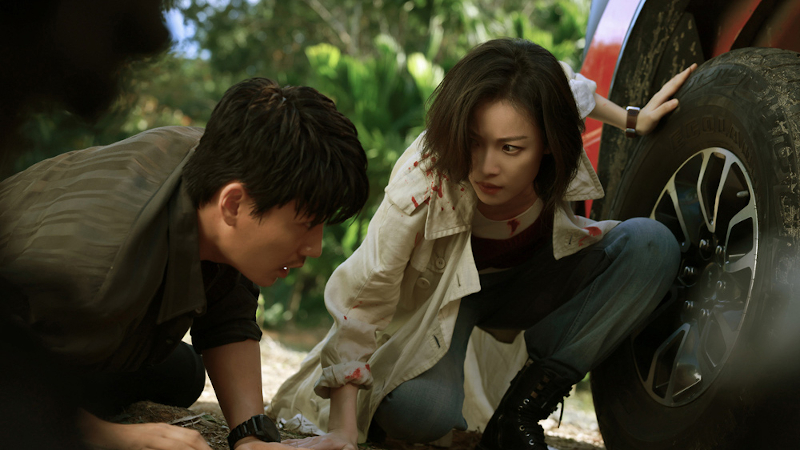
The final half hour is different again… it’s the (equally compelling) flashback revelation as to what actually went on while what we believed to be going on for the previous 90 minutes slowly unravels before our eyes, to be replaced by the alternative – and now true explanation of all that we’ve witnessed.
The performances are all excellent throughout, completely drawing you in even as character identities shift. The title relates to, among other things, the vanished wife’s love of Van Gogh paintings generally and his picture The Starry Night specifically. In short, this might be a big budget blockbuster, but it’s also highly effective as a disappearance mystery thriller and an examination of impression, deception and identity. Apparently, they do occasionally still make them like that. A gem.
Lost In The Stars is out in cinemas in the UK on Friday, July 14th.
Trailer:
